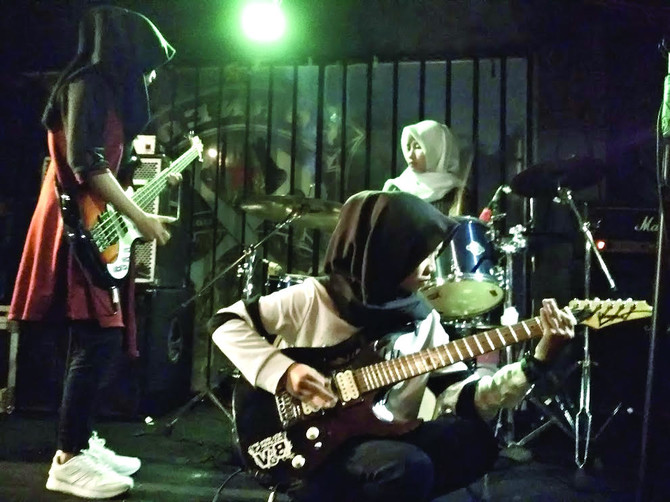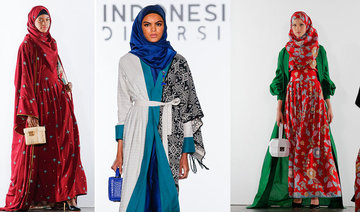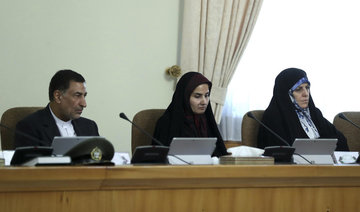JAKARTA: Like any up-and-coming band, teenagers Firda Kurnia, Widi Rahmawati and Euis Siti Aisyah only want to talk about their music. But all anyone else wants to talk about is that they wear the hijab.
If anyone asks the three girls from Singajaya, a rural area in Indonesia’s West Java province, whether there is a connection between what they wear and being members of a metal band, they say no.
“I feel weird and disappointed if our metal band is associated with the fact that we wear the hijab. I prefer if people would just talk about our music,” said Firda, 17, the guitarist and vocalist with Voice of Baceprot.
Baceprot means “noisy” in Sundanese, a language spoken mainly in West Java.
The girls said their hijab was their identity as Muslims, but metal was just a music genre for them to channel their creativity. They knew the controversy was coming, but it still irritates their music teacher and manager, Cep Erza Eka Susila Satya, when the two are linked.
“When I first introduced them to music, it never really occurred to me about their hijab. They are students of an Islamic school so it’s just normal that they wear the hijab,” Cep Ersa told Arab News at a bar in Jakarta’s hip neighborhood of Kemang, where the girls were checking their sound before a performance.
“I was just offering them the chance to make music the medium to channel their aspirations. I think it would be too much to associate wearing the hijab and performing music.”
Firda, Widi and Euis did not come from musical families and they had no knowledge of music to start with. But after taking part in a musical drama in 2014 in their Islamic junior high school, or madrassa, they started to listen to Cep Erza’s metal music collection on his laptop.
Cep Erza lent the girls the computer so they could use it to write, but they pored over his playlist, which included songs from metal and rock bands such as System of a Down, Rage Against the Machine, Slipknot and the Red Hot Chilli Peppers.
Cep Erza, who was their school counselor, advised them to channel their aspirations through music, because music is universal and they can get their message across religious or cultural boundaries. He was surprised when the girls showed an interest, and he found it was easy to teach them music.
“We just fell in love with the music and started to learn to play,” Firda said. There were seven girls in the beginning but four of the members withdrew from the band as they were focusing on study for their junior high school exam.
“And then there were just the three of us, and in 2015 we started to get serious,” she said.
Euis, 17, had no idea how to play the drums, so she started to learn by playing on some used drums from the school’s marching band troupe. “After a week I finally got the hang of it,” she said.
Widi also learned to play bass in an unconventional way. She said Abah — the girls’ nickname for Cep Erza — taught her how to play the classical guitar first, and soon she was able to play the basic chords. “Abah then taught me to play bass on the guitar,” Widi said.
Since then the girls have built their own local and national following; social media was a substantial part of getting their clips seen worldwide, and gaining an international following beyond Indonesia.
From their first paid local gig in 2014, for which they earned 500,000 Indonesian rupiah, or less than $40, they now play in front of a national audience at events in the Indonesian capital, about seven hours drive from their home town. In August, they performed at a national concert to celebrate the 72nd anniversary of Indonesia’s Independence Day.
What also fascinates Cep Erza is the effect of Indonesia’s “demographic dividend,” a topic of much debate. It happens when the ratio of people under 15 and over 65 shrinks in relation to those in between, deemed to be of a productive age. Indonesia is entering that era now, and the peak is projected to be from 2028 to 2031.
“What I hope for the girls is that they will really become Indonesia’s demographic bonus,” Cep Erza said.


























